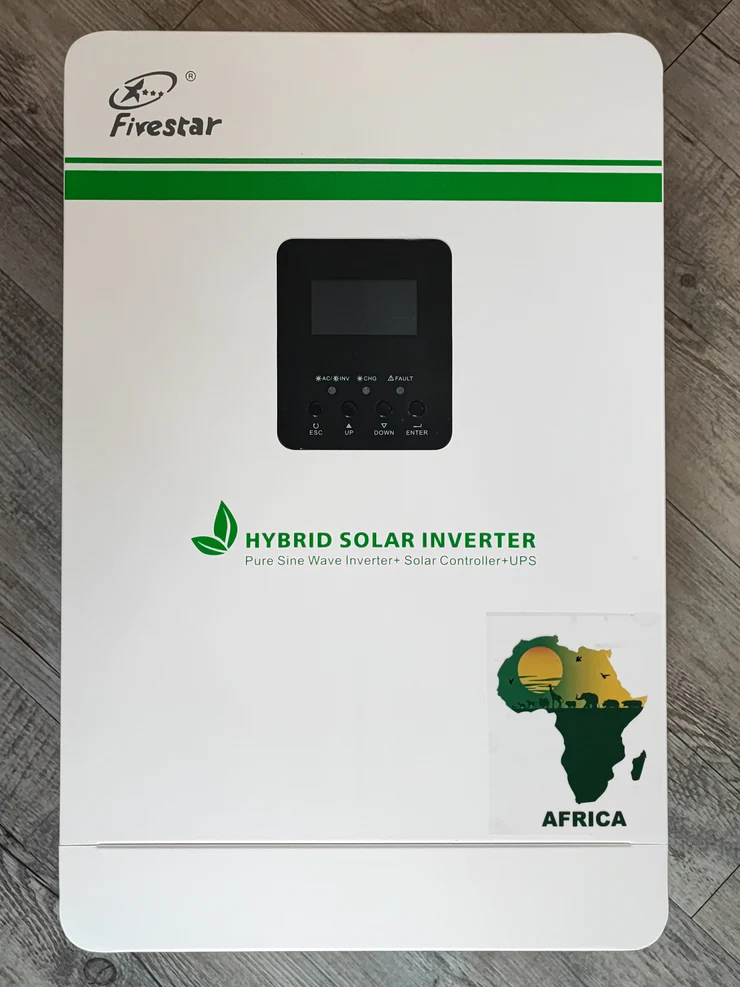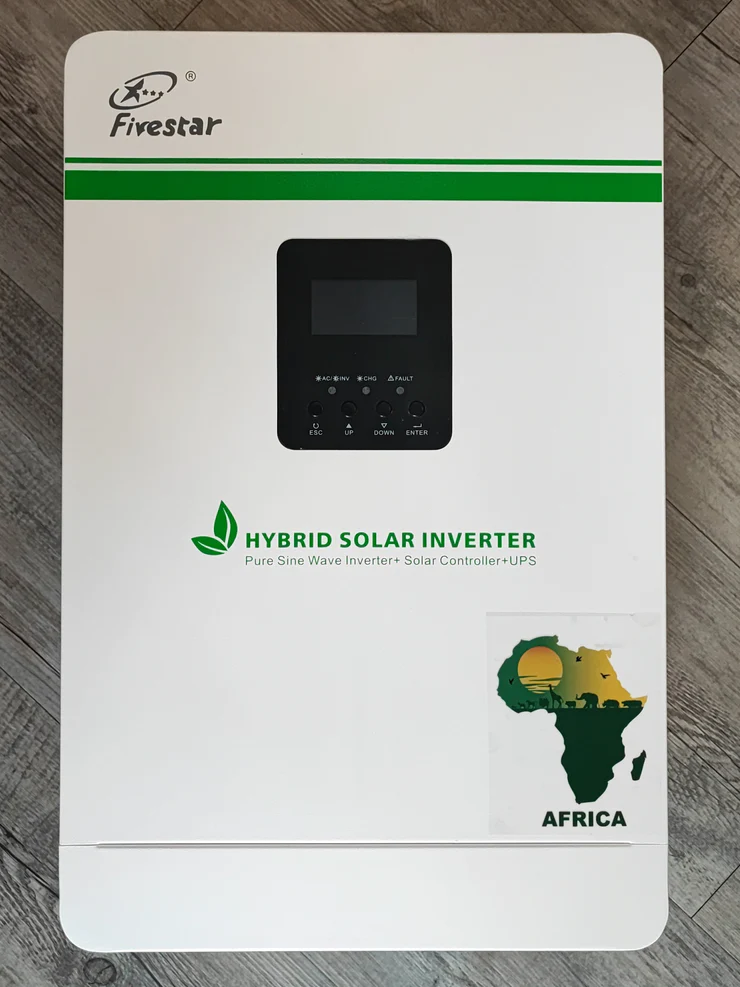Exploring the Benefits of Hybrid Inverters and How They Operate
Inverters are an important part of solar energy systems, helping them to convert energy from the sun into usable electricity.
Welcome to our blog post about the benefits of hybrid inverters and how they operate.
Hybrid inverters have become increasingly popular in the solar energy industry due to the additional benefits they offer over traditional inverters. In this post, we’ll go over the benefits of hybrid inverters and how they work. We’ll also discuss why they are becoming so popular, and why they might be the right choice for your solar energy system. So, let’s get started!

What is a hybrid inverter?
A hybrid inverter is a type of energy conversion device that combines both grid-tied and off-grid inverter technology. This device is designed to convert DC power from solar panels, batteries, or other sources into AC power for use in homes and businesses. Hybrid inverters offer a number of advantages over traditional inverters, including increased efficiency, improved safety and reliability, and less waste of energy.
Hybrid inverters are becoming increasingly popular as a reliable and efficient way to store and use energy from renewable sources. They are designed to operate both on and off-grid, allowing for greater flexibility in energy management and storage. Hybrid inverters also have the ability to store energy for future use, making them a great option for those who want to reduce their reliance on the grid.
At its most basic level, a hybrid inverter consists of three main components: an AC-to-DC converter, a DC-to-AC converter, and a battery storage system. The AC-to-DC converter is responsible for converting AC power from the grid into DC power, which is then stored in the battery storage system. The DC-to-AC converter then converts the DC power back into AC power for use in the home or business. This process allows for a more efficient use of energy, as electricity can be stored for later use.
Hybrid inverters offer a number of advantages over traditional inverters.
For one, they are more efficient and reliable, as they can store energy for later use and provide backup power in the event of a power outage. They are also more cost-effective, as they require less maintenance and can be installed in remote areas where traditional inverters cannot. Finally, they are safer, as they are designed to reduce the risk of overheating, short-circuiting, or other hazards associated with traditional inverters.
For those looking to reduce their reliance on the grid and take advantage of renewable energy sources, hybrid inverters offer a great option. By combining both grid-tied and off-grid inverter technology, hybrid inverters provide an efficient and reliable way to store and use energy from renewable sources. With their increased efficiency, improved safety and reliability, and cost-effectiveness, hybrid inverters are becoming increasingly popular as a reliable and efficient way to store and use energy from renewable sources.
How do hybrid inverters work?
So, how exactly do hybrid inverters work? Hybrid inverters are designed to take the energy produced by multiple solar panels and combine it into one single output. This output is then typically sent to an AC/DC inverter and then sent to a battery bank to store the energy for later use. This energy can be used to power various appliances and devices in the home or to be sold back to the grid.
The hybrid inverters also come equipped with a variety of features and functions to help maximize the potential of the solar energy system. This includes features such as maximum power point tracking (MPPT) which helps to optimize the output of the PV system, as well as advanced safety features such as short circuit protection and surge protection to protect the system from any unexpected power surges.
By combining the features of both string inverters and microinverters, hybrid inverters provide a cost-effective, efficient solution for any solar energy system. Whether you’re looking for an easy way to go off-grid, or just want to maximize the potential of your solar energy system, hybrid inverters are a great choice.
The benefits of using hybrid inverters
Hybrid inverters provide numerous benefits over traditional inverters, making them an increasingly popular choice for home energy storage and renewable energy integration. The most notable advantage of hybrid inverters is their increased energy efficiency. Hybrid inverters are designed to be more efficient than traditional inverters, meaning they can convert more energy into usable power. This means that more of the energy produced by solar panels or other renewable energy sources is put to use, rather than being wasted.
In addition, hybrid inverters are more reliable and require less maintenance than traditional inverters. This makes them a great choice for long-term operation, as they won’t require frequent repairs or replacement. Hybrid inverters are also capable of operating both on-grid and off-grid applications, making them highly versatile for a variety of applications.
Finally, hybrid inverters provide a cost-effective solution for home energy storage and renewable energy integration. By utilizing the latest technology, hybrid inverters are able to store energy more efficiently than traditional inverters, resulting in significant long-term cost savings.
All of these benefits make hybrid inverters an attractive option for homeowners looking to reduce energy costs and take advantage of renewable energy sources. If you’re considering using a hybrid inverter for your home energy needs, it’s important to understand how they work and how they can benefit you.
How to choose the right hybrid inverter
When exploring the benefits of hybrid inverters, it’s important to understand the technology and how it works. Hybrid inverters are a combination of both traditional inverters and grid-tied inverters. They offer the best of both worlds by allowing you to use traditional battery storage in addition to grid-tied power. This allows you to store battery power for when you need it, and use grid-tied power for when it’s more cost-effective.
The advantages of using hybrid inverters are numerous. They provide reliable energy storage and backup power during power outages. This is especially important for critical applications such as medical and industrial facilities. Additionally, they are capable of producing power from both AC and DC sources, and can be used with solar, wind, and other renewable energy sources.
When choosing the right hybrid inverter, it’s important to consider the type of application you’re using it for. Different models are designed for different purposes and applications. For example, some models are designed for residential use, while others are designed for commercial and industrial use. Additionally, some models are more efficient and have more features than others.
When selecting a hybrid inverter, it’s important to consider the features and benefits offered. Some models are capable of providing backup power during power outages, while others offer advanced features such as smart grid compatibility and remote monitoring. Additionally, some models are more efficient and have more advanced features than others.
By understanding the technology and features of hybrid inverters, you can make an informed decision and choose the right inverter for your needs. With the right hybrid inverter, you can enjoy the benefits of reliable energy storage and backup power, as well as the ability to use renewable energy sources.
Tips for maintaining hybrid inverters
Maintaining a hybrid inverter system is key to ensuring optimal performance and maximizing its benefits. Here are some tips to help you do just that:
- Understand the differences between grid-tied and off-grid inverters. Grid-tied inverters are connected to the utility grid, while off-grid inverters are not. Hybrid inverters are a combination of both, and can be used in either context. Knowing the differences between the two helps you to choose the right inverter for your needs.
- Make sure your system is properly installed. Hybrid inverters require careful installation to ensure they are properly connected to your renewable energy system. This includes making sure the inverter is connected to the right batteries and other components, as well as ensuring the wiring is properly routed and secure.
- Monitor your system performance regularly. It’s important to monitor the performance of your hybrid inverter system on a regular basis to ensure it’s running efficiently. This includes checking the output voltage, current, and frequency, as well as the temperature of the inverter and other components.
- Clean and inspect the inverter on a regular basis. Dust and dirt can accumulate on the inverter over time, so it’s important to clean the unit periodically. You should also inspect the unit for any signs of damage or wear and tear.
By following these simple tips, you can help ensure that your hybrid inverter system is running optimally and providing you with the maximum benefits. With proper care and maintenance, your hybrid inverter system can provide you with years of reliable, efficient energy.

